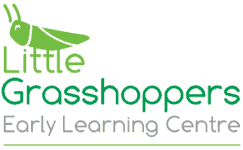Our Policies
Payment of fees
At Little Grasshoppers, we have our own direct debit system. You will receive an invoice for your account prior to payment being processed weekly on a Friday.
If you have difficulties in payment, please contact parentpayments@littlegrasshoppers.com.au
At Little Grasshoppers, we have our own direct debit system. You will receive an invoice for your account prior to payment being processed weekly on a Friday.
If you have difficulties in payment, please contact parentpayments@littlegrasshoppers.com.au
- Undertake to pay fees via direct debit through ‘Hubdebit’ Fees apply, as they fall due. If not paid my child’s place may be forfeited. Hubworks charges are as Bank Account – Per transaction: $0.75 Visa / Mastercard – Calculated on transaction value: 0.90% + $0.75 Amex – Calculated on transaction value: 3.85% + $0.75 Failed Transaction – Per failed or returned transaction attempt: $2.75
- Understand that fees must be paid weekly.
- Understand that fees must be paid regardless of attendance, e.g. sick days, holidays as the Education and Care Service must remain fully staffed.
- Understand fees must be paid if my day falls on a public holiday, however the centre will endeavour to give my child a replacement day
- For full time children four weeks at half rate per year.
- Two weeks notice must be given to change days or cancel care. Failure to give notice will incur payment of the two weeks.
- Dishonoured fees will occur a $15 administration charge.
- A bond of $250 is payable on enrolment. This will be drawn down when you give notice to leave the service.
- Receipts will not be issued, however all parents have online access to Hubworks to view receipts and attendances. A login and password will be emailed upon enrolment.
Parents with accounts two weeks overdue can expect:
- Overdue notice
- Child’s place forfeited (if immediate payment not received)
- Account given to debt collector
Consecutive failures
-
- 2 rejections – Warning email
- 3 rejections – Termination of Care letter
- Debt Collector – all costs associated with collecting the debt will be charged to the parent.
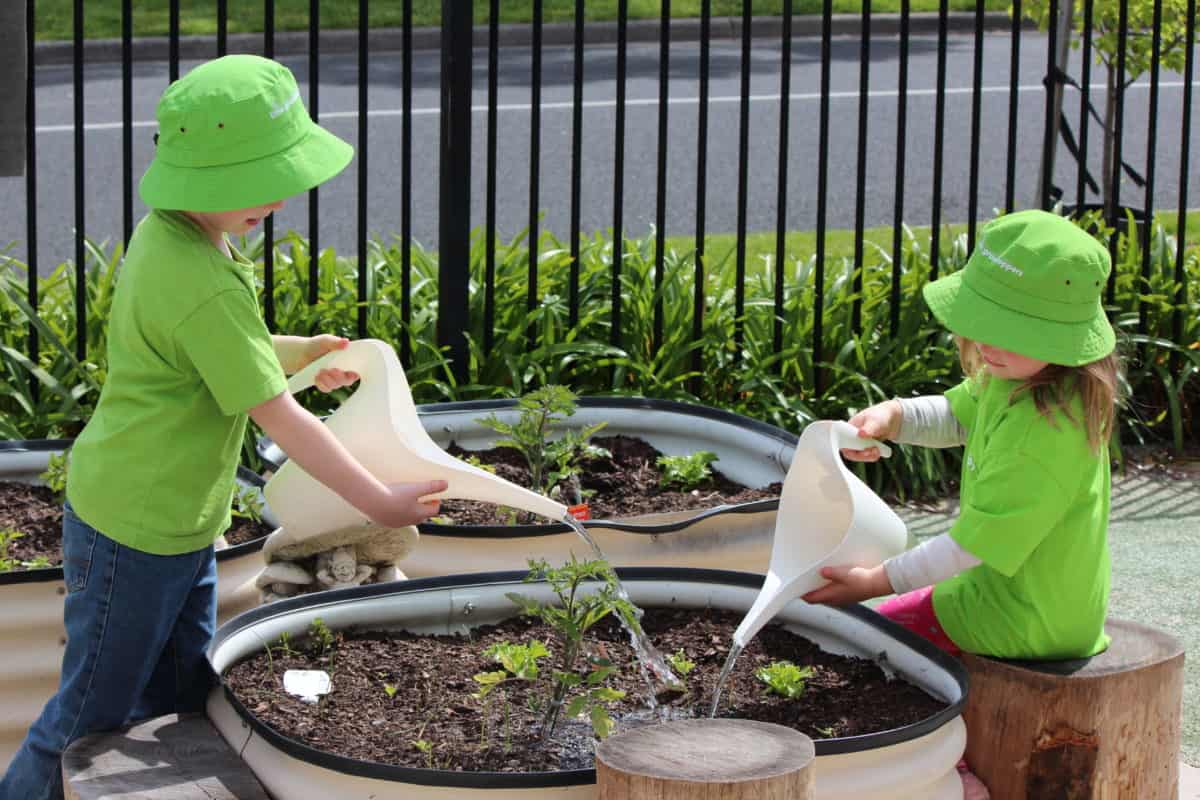
CCS Calculator
Please note, this external calculation platform can only provide an estimate of your fees based on the information you input.
Orientation upon enrolment
Before commencing enrolment, the opportunity exists for the child and the parent/guardian to visit the centre on a casual basis to discuss the child’s routine with staff. For many families enrolment and orientation are often the first time their child has been cared for by someone other than a relative or friend. Therefore, flexibility and sensitivity are key factors in ensuring that children and families have a positive enrolment and orientation experience.
Enrolment and orientation is designed for families to familiarise the child and family with the service and to develop trusting relationships.
During the child’s orientation, staff will fill out an orientation form detailing what the child has participated in during the orientation and present this to parents/ guardians upon collection.
Each child reacts differently to a new experience. We will endeavour to ensure your child is made to feel welcome and part of the group. The experience can also be difficult for the family and often you leave the centre feeling worse than your child. This is why respectful and open communication between educators and families is so important. We encourage you to ring us during the orientation to discuss your child’s progress.
A favourite toy or blanket is welcome to be brought to the centre to ease distress.
Educators are aware that this is often an upsetting time for the child and families. At Little Grasshoppers Early Learning Centre, our caring educators help to settle children and families with care and understanding. Educators will discuss with the parent/guardian the child’s progress, keeping them well informed if there is a problem with the child settling in. If the child is not settling, educators may suggest they come and collect and make arrangements with the family about the duration of their days and orientate them in slowly.
Communication and partnerships with families
At Little Grasshoppers we feel it is very important for families to feel they are involved in their child’s education.
We believe effective partnerships with families will ultimately result in positive outcomes for children, families and educators.
All parents and guardians are asked to familiarise themselves with our methods of communication. We feel this is very important. As we know drop off and pick up time can be a little busy, with many families having other commitments and time schedules to keep in mind. Some of the ways we communicate with families are;
-
- Information about centre events, illnesses, and closures being displayed on the front door or window
- Individual communication diaries for our infants and toddler groups which go home with families each evening
- Monthly newsletter
- A suggestion box in the entrance foyer
- Program and observation feedback forms for families to give feedback on their child’s interests and their development. This information between families and staff is a vital component in planning meaningful experiences for your children.
We hope families will take advantage of our communication forms and make contributions to the program, menu and daily routines or voice any issues or concerns you may have.
The centre will source any written material required in home languages.
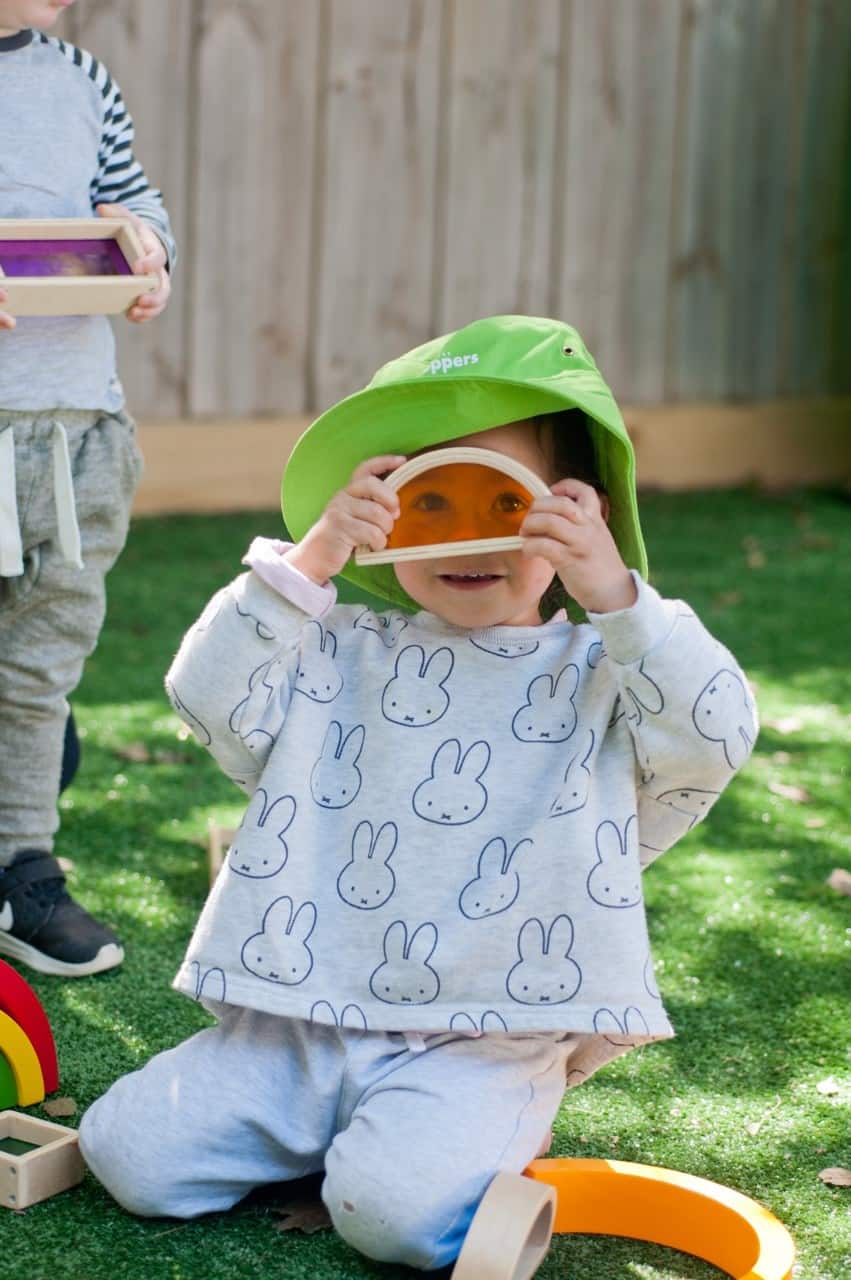
Expectations and benefits of parental involvement
At Little Grasshoppers Early Learning Centre we encourage and value any input that our families wish to contribute. Any contribution by families is most welcome, e.g. gardening, cooking, reading a story, excursions or any other special skill.
Special activities throughout the year will be held which parents/guardians are encouraged to attend. However, we are aware of the time limitations of working parents.
At Little Grasshoppers we offer families opportunities to work in partnership with educators to make decisions about their child, as well as about the services policies and practices.
We encourage input in regards to programming/ evaluation and observations relating to the children. We welcome all contributions, thoughts and ideas to support your child’s learning and development.
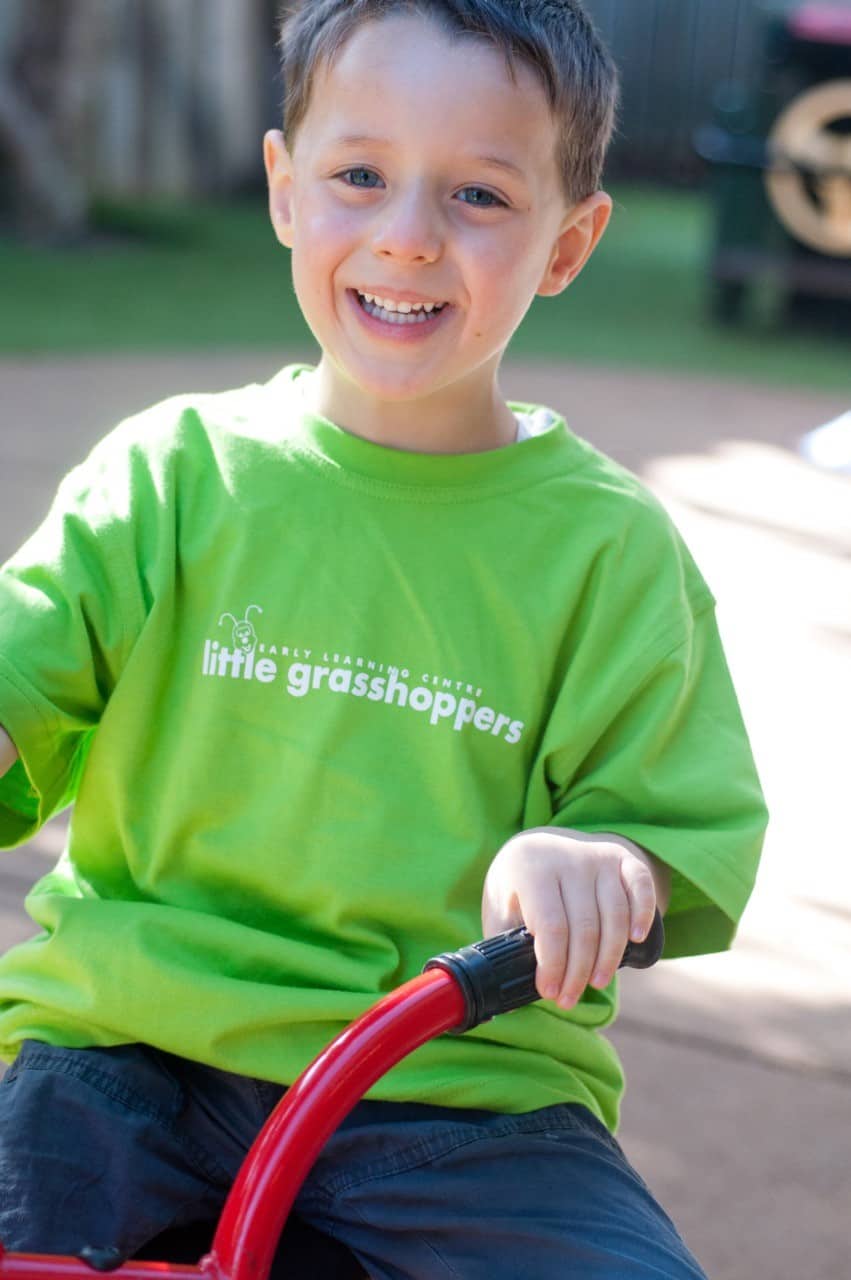
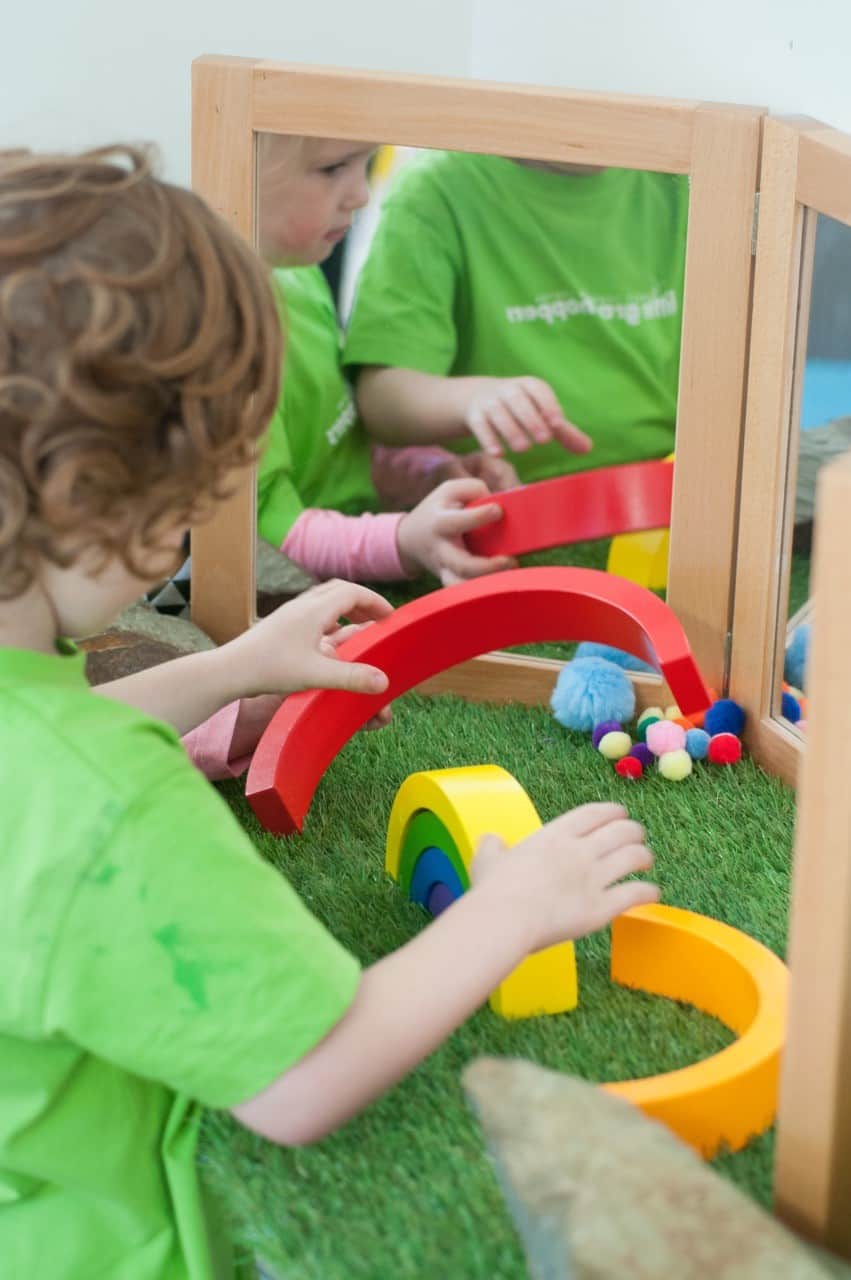
Parent/guardian responsibilities:
- Signing in and out on the attendance records Collection of your child/ren
- Notifying the centre of change of address and phone number
- Authorising medication to be administered, using medication authorisation forms
- Providing up to date immunisation records
- Providing the centre with copies of custody/access arrangements – Court Orders
- Keeping us up to date with people authorised to collect your child
- Reading the notice board/newsletters and responding appropriately
- Take home and returning communication diaries and scrapbooks
- Payment of fees on time
- Responding to surveys and questionnaires
Absentees
It is greatly appreciated that the centre be notified as early as possible should your child become ill or unable to attend.
Hours of operation
The centre is open 5 days a week, excluding public holidays. Any changes to closure periods all families will be given at least 60 days’ notice.
Meals
All meals are prepared on the premises daily.
The menu is designed to incorporate: morning tea; a selection of seasonal fruits, a cooked lunch and afternoon tea.
Menus are displayed in the front foyer and change every three months. This time frame allows children to become aware of tastes and textures of the food.
Families are encouraged to make suggestions in regards to menu planning.
Children are encouraged to set tables, serve themselves food and pour water.
Children’s likes and dislikes will always be taken into consideration, choices and second helpings are encouraged.
Hygiene
Hygiene
Washing hands is a very important hygiene practice for educators, children, families and visitors to the centre. Washing hands on arrival at the centre is encouraged and practised as a main way to eliminate germs / disease from being brought into the centre. Hand washing is done before and after all nappy changes and toiletry procedures, all food / drink handling, and the cleaning of children’s faces.
- Staff clean tables throughout the day and sweep and mop floors after meals and activities
- Rubbish is removed regularly throughout the day
- Rubbish bins are cleaned with sanitiser
- All equipment is kept clean at all times
- One face washer or tissue is used per child and disposed of correctly after use
- Face washers are washed separately from other items
- Toilet and nappy change areas are checked and cleaned several times throughout the day
- All mops are colour coded for use in specific areas
- Bed linen is only used for one child and regularly washed after use
- Walls, windows, lockers and shelves are cleaned regularly
- Food safety standards are adhered to at all times
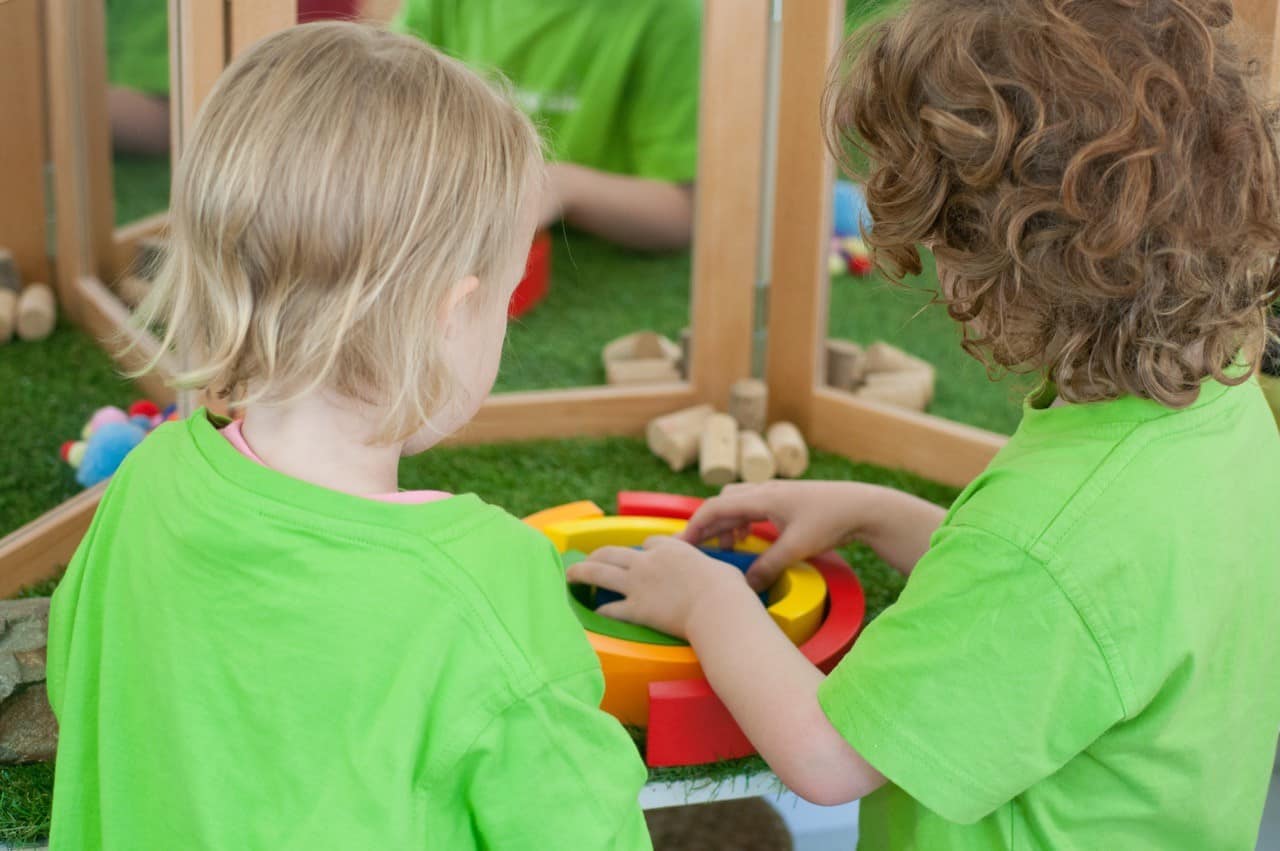
Emergency Procedures
The Education and Care Service will ensure that every precaution is taken to protect children from any hazard likely to require emergency evacuation. Educators will be with children at all times during the evacuation. Educators will marshal to the two designated areas away from the centre – Alexandra Park (Football Oval) and Wilson Reserve. Parents will be notified as soon as possible.
Throughout the children’s normal attendance, emergency evacuation will be practiced regularly to familiarise them with the whistle, exit signs and how to move quickly without running.
In the event of a disaster or emergency, we will always evacuate the building.
In the event of a potential threat such as bad weather, toxic spills, livestock on the loose and dangerous persons, lockdown procedures will be followed.
Infectious diseases
Any child who has contracted an infectious disease will be excluded from the centre during the incubation period. The child will not be permitted re-entry until a medical certificate is produced by the parent/guardian. Exclusion to the centre is also applicable to siblings of the infectious child, whether symptoms have appeared or not. A notice will be posted at the entrance of the centre informing all parents/guardians of an outbreak. Thereafter, daily reports will be posted as to the progress of the disease.
In the interest of other children and their parents/ guardians, please do not bring your child to the Centre if the child has been vomiting in the last (24) hours or has had diarrhoea in the past (48) hours. Notifiable diseases will be reported to the required health authorities and the centre will follow appropriate action.
Exclusion periods are guided by Staying Healthy In Childcare. The need for exclusion depends upon the ease with which the infection can be spread, the ability of the infected person to follow hygiene precautions and the severity of the disease. These are recommended minimum periods of exclusion based on risk of infection but a child may need to stay at home longer than the exclusion period to recover from an illness. A doctor’s clearance certificate may be required for re-entry.
Illness or injury
In the event of illness or injury we will ensure that your child is made to feel secure and comfortable. The child will be assessed by educators and the person in charge prior to calling in medical professionals.
In the case of emergency, an ambulance will be called immediately. Immediately following this call, the parent/guardian will be contacted. If the illness or injury is not so severe and medical treatment is not required, appropriate procedures will be carried out and the child will comforted while the parent/guardian is notified. All health regulations and statutory rules will be strictly adhered to by the centre. Any accidents will be written in the accident and injury book and reported to the person in charge. The parent/guardian will be rung and must sign the accident book on arrival.
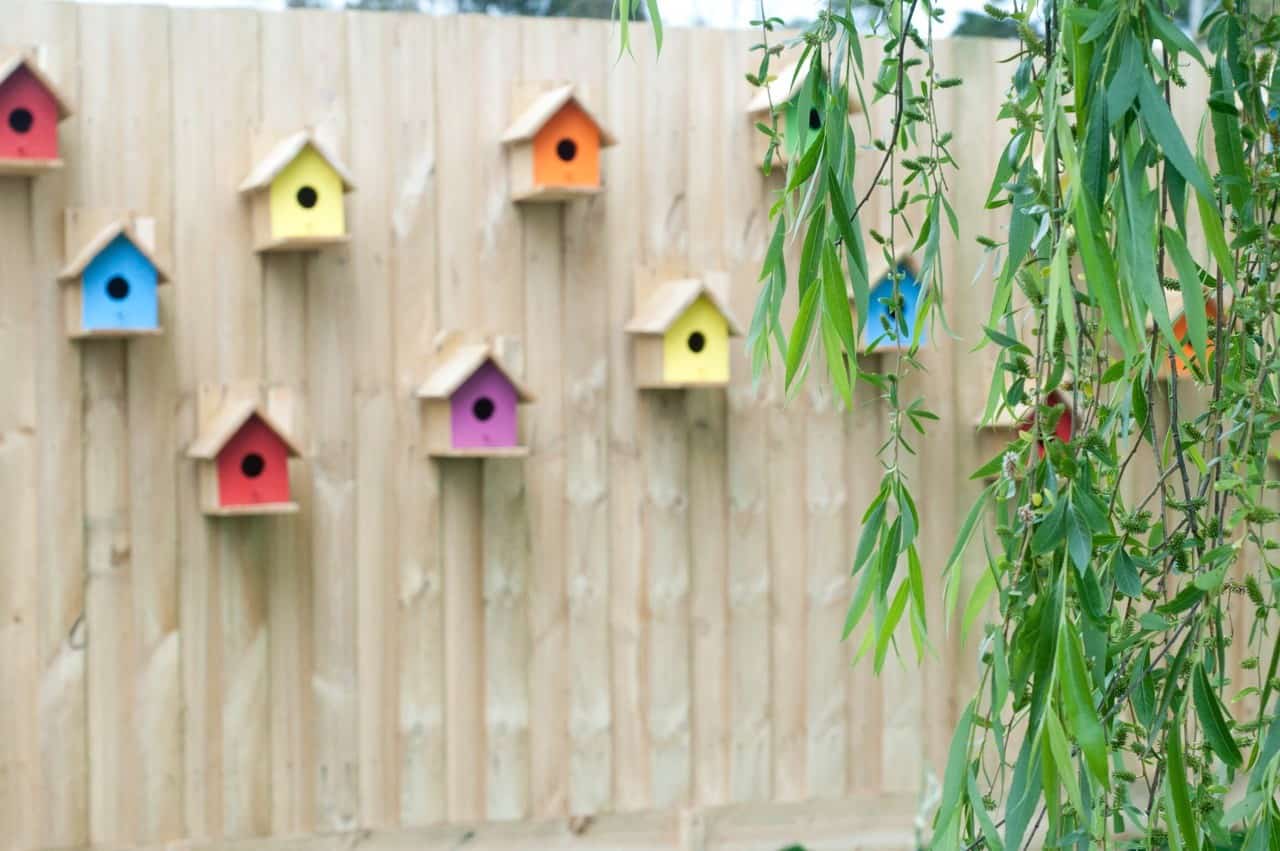
Anaphylaxis policy
At Little Grasshoppers, we have children diagnosed as being at risk of anaphylaxis. We recognise the importance of all responsible for the children at risk of anaphylaxis and educators are regularly trained.
Parents must inform staff if their child is at risk of anaphylaxis upon enrolment, and provide an anaphylaxis action plan which will be displayed in the kitchen area and the child’s room. Parents/guardians must also provide written consent that they have read our policy and give us permission to administer medication if necessary. A risk assessment will be undertaken with educators and parent/guardians.
EpiPen and any medication are to be kept in the allocated area at all times the child is attending the service.
This policy is very detailed and works in line with our illness & injury policies and the administering of medications and emergency treatment.
Asthma policy
Asthma is a chronic condition affecting many children. At Little Grasshoppers educators are regularly trained to be able to identify asthma symptoms. Educators are trained to administer asthma medication in accordance with the child’s Asthma Action Plan.
All information is displayed in the kitchen for all staff to see and follow each child’s individual Asthma Action Plan.
At Little Grasshoppers, we encourage families to communicate the status of their child’s asthma and staff will discuss any concerns to parents/guardians should it be considered that a child’s asthma is limiting his/her ability to participate fully in all activities.
Sun protection
At Little Grasshoppers, our Sun Protection Policy has been developed to ensure that all children are protected from potential skin damage by the sun’s harmful ultra-violet (UV) radiation. This policy will be implemented from the start of September through to the end of April.
All activities outdoors will be scheduled before 11am and after 3pm. Hats are required for outdoor play.
Hats are not required to be worn from May to August. The availability of shade will be considered when planning outdoor activities.
Sunscreen SPF 30+, broad –spectrum sunscreen will be provided for children’s use. If your child has sensitive skin, please supply the centre with your preferred brand of sunscreen.
For further information regarding this policy, please see policy book at entrance foyer.

Clothing
We encourage families to dress children appropriately for all weather conditions. The centre will supply smocks for messy activities eg. painting, finger painting, clay work, etc.
Clothing for summer: Wear hats that cover the face, neck and ears, eg. Legionnaire or a broad brimmed hat. Broad brimmed Little Grasshoppers hats are available for $5 from each centre. Clothing that offers protection from the sun and breathes easily is recommended along with tops that cover children’s shoulders. Singlets or dresses with thin straps are not allowed.
Clothing for winter: Clothing that keeps children warm. Long pants, singlets to keep the chest warm covered by a long sleeve top or skivvy and jumpers. Jackets are encouraged to be worn when outside with scarves and beanies.
Please label all your child’s clothing. Educators regularly check children’s clothing and discuss what is appropriate to wear in the different seasons.
Drawstrings on children’s clothing are a hidden hazard that can lead to death and injury when they catch on such items as playground equipment or doors. Parents/ guardians are advised to completely remove the neck strings from all children’s outerwear, including jackets and sweatshirts. Children’s outerwear is available that has alternative closures, such as snaps, buttons and velcro.
Requirements from home
Please supply your child with a bag, as they regularly have artwork, notices and diaries that need to go home. All children’s bags can be placed in their allocated locker.
Zero to 3 age group: Please supply your child with disposable nappies, dummies with protective caps, bottles to be placed in fridge clearly labelled, as well as a change of clothes in case of accidents. If toilet training, please supply extra pants and clothing to support the child through this process of becoming independent.
Three to 5 age group: Please supply your child with a change of clothes, hats, jumpers and jackets as per weather conditions.
We also ask that you supply a drink bottle that will be made available to your child at all times of the day.
Excursions and visitors to the centre
Parents/guardians will be notified of any visitors coming into the centre. Excursions out of the centre are enjoyable and a valuable learning experience. Parents/guardians will be sent information regarding the excursion stating date, destination, transport, departure and arrival times. A permission form/medical release form must be signed to allow your child to partake in the excursion.
